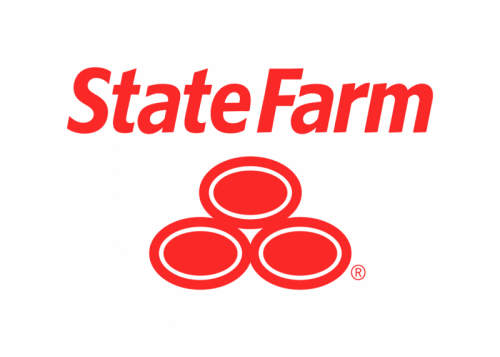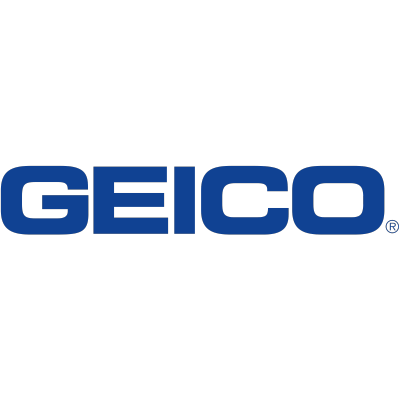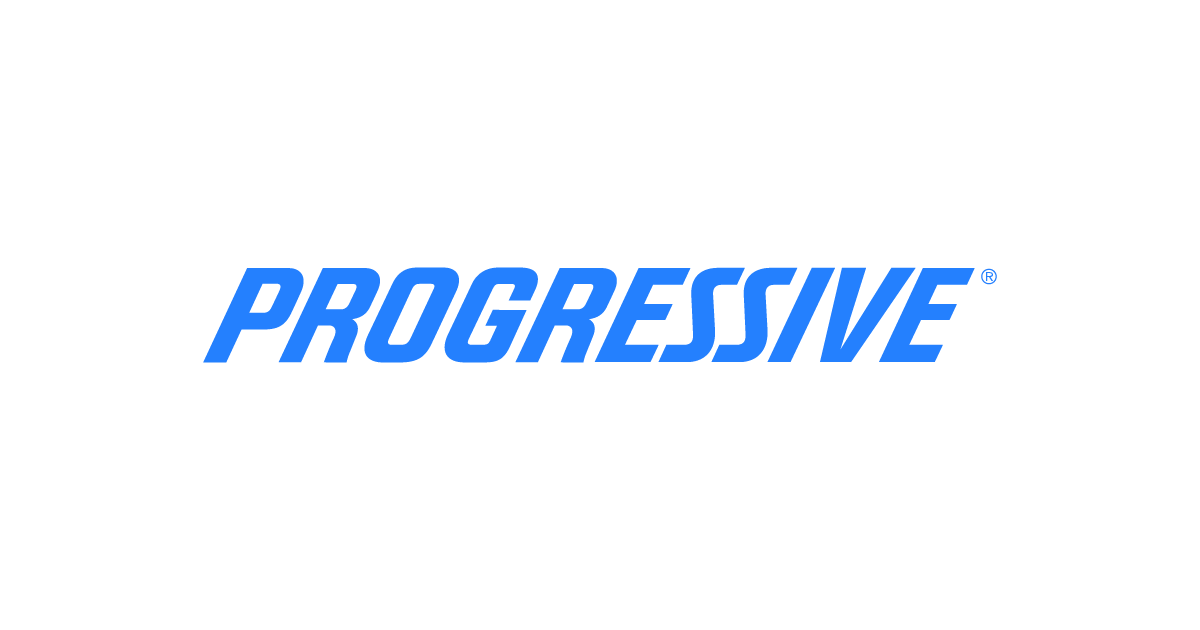Auto insurers consider the likelihood a person will make a claim when deciding how much to charge for insurance coverage. If a driver has certain black marks on their driving history, such as a DUI, insurers assume that person is more likely to have an accident. As a result, the driver may only be eligible for high-risk car insurance. Here are our picks for the best auto insurance for high-risk drivers.
Best High-Risk Car Insurance for 2024
- Best for DUI coverage: State Farm
- Best for reckless driving coverage: Geico
- Best for prior at-fault accidents coverage: Progressive
- Best for poor credit: Nationwide
Best for DUI coverage: State Farm

Bottom Line
State Farm offers a large network of nationwide insurance agents who can help motorists explore coverage options. And it earned top marks from J.D. Power & Associates for its online offerings. Motorists who bundle home and auto insurance can save up to 11% on coverage with State Farm. Plus, the insurance company will lower a person's premiums if they complete a defensive driving course, even if they're a high-risk driver.
Best for reckless driving coverage: Geico

Bottom Line
Geico's premiums for reckless drivers are around 30% cheaper than many competitors. That's why this insurance company is one of the best options for people with a conviction for reckless driving.
Also, Geico rates above average in customer satisfaction according to surveys conducted by J.D. Power & Associates. Plus, it has an A+ rating with the Better Business Bureau. A qualified driver can earn discounts from the insurer for bundling coverage, vehicle safety features, and completing a defensive driving course. These discounts are still available for motorists with reckless driving charges.
Best for prior at-fault accidents coverage: Progressive

Bottom Line
Progressive's premium surcharge after an accident is relatively small compared to many competitors. The Ascent's research revealed an approximately 22% rise in Progressive's premiums following an at-fault crash. The impact of an accident does vary depending on where a person lives. In fact, Progressive reported a nationwide average premium increase of 28% after an accident.
A lower surcharge ensures coverage is still affordable after a collision. On top of that, Progressive offers accident forgiveness immediately upon becoming a customer. That means premiums don't always go up due to a crash. And the insurer received an A+ Better Business Bureau rating, so drivers can feel confident in the customer service they'll receive.
Best for poor credit: Nationwide

Bottom Line
Like most insurers, Nationwide uses a credit-based auto insurance score to set premiums. However, the insurer's premium surcharge for poor credit borrowers is smaller than many competitors.
Plus, Nationwide allows people to request a rate reduction. Policyholders can do this if their credit information was impacted by a divorce, the death of a close family member, or certain other life factors. An A+ rating from the Better Business Bureau also provides peace of mind about Nationwide's coverage.
What is high-risk car insurance?
High-risk car insurance is auto insurance for people who are riskier for the company to insure than most motorists. Finding affordable car insurance for high-risk drivers is a challenge. That's because an insurance provider prices policies based on the likelihood of a claim. They charge more when someone's driving history suggests increased chances of an accident.
High-risk car insurance is also called nonstandard auto insurance. If this is the only option to get covered, shop around carefully. Finding cheap car insurance for someone with a bad driving record is difficult. Still, some companies charge much less than others.
How much does high-risk insurance cost?
According to Motor1, average high-risk auto insurance costs up to 53% more following an accident and a whopping 84% after a DUI. The exact price of nonstandard auto insurance varies. It's affected by a person's age, the type of problems on their driving record, where they live, and even their credit score. The insurance provider a driver chooses also matters. Some high-risk auto companies specialize in insuring drivers with troubled records. They may charge less than others.
In general, high-risk drivers could see insurance premiums increase dramatically. This is compared to motorists with an unblemished driving record.
What is a high-risk driver?
A high-risk driver is any motorist an auto insurer believes is significantly more likely to make an auto insurance claim. This includes drivers with:
- Little driving experience
- Multiple moving violations
- At-fault accidents within the past five years
- Drunk driving convictions
- Reckless driving convictions
- A history of driving without auto insurance
In most states, motorists with a poor auto insurance credit score are also seen as higher risk. And drivers with certain types of vehicles -- such as sports cars -- are statistically more likely to become involved in a crash. They're also considered high risk.
The best high-risk car insurance companies
Even the best high-risk auto insurance companies charge higher premiums for motorists with a bad driving record. These policyholders can't avoid paying more than the standard car insurance cost on average. But surcharges imposed by these companies aren't as expensive as those charged by competitors.
An insurance provider also treats violations with varying levels of severity. That means an auto insurer that's most affordable for someone with a DUI won't necessarily be the cheapest option for someone with a reckless driving conviction.
Premiums and coverage options also vary by state. As a result, the best car insurance for a bad driving record may be different depending on where the motorist lives. Here are some insurers who generally provide coverage at fair prices for motorists with past problems.
Most affordable high-risk car insurance for high-risk drivers
The most affordable high-risk car insurance varies by state, age, and the reason a motorist is considered high risk. However, some companies that have the best reputations for providing cheap car insurance for someone with a bad driving record include:
- State Farm: This insurer doesn't penalize motorists with DUIs as much as many competitors.
- Geico: Premiums for motorists classified as reckless drivers are lower with Geico than with many other insurers.
- Progressive: Progressive is a good choice for motorists with at-fault accidents. Its premium surcharge average is just 22% nationwide. This is below what many others charge.
- Nationwide: Nationwide won't penalize those with poor credit as much as many insurers. A policyholder can also request a rate reduction if certain life events led to low credit.
These carriers may not always be the least expensive. Prices depend on where a motorist lives and the specifics of their driving record. That's why it's always important to get personalized auto insurance quotes.
How to get cheaper car insurance for high-risk drivers
High-risk car insurance is always going to be more expensive. The entire insurance model is based on pricing to account for risk. But that doesn't mean there aren't variations in the cost of car insurance for motorists with bad driving records.
To find the cheapest high-risk car insurance:
- Shop around. Get quotes from different insurance companies: Since surcharges for past problems aren't standard, it's especially important to compare car insurance rates. Consider checking premium prices with at least five companies.
- Bundle coverage: Most insurers offer significant discounts if a person buys multiple types of insurance, such as home and auto. These discounts aren't forfeited just because someone is a high-risk driver.
- Take advantage of other discounts: Insurers may offer reduced premiums to those who belong to certain organizations.
- Buy only the necessary coverage: It's important for people not to buy too little protection and risk big losses. But a driver also shouldn't pay for unnecessary protection. For example, it might not make financial sense for a motorist with a very inexpensive vehicle to buy collision insurance to pay for repairs.
- Ask your insurer about options to reduce your insurance rate: Some people can participate in safe-driving programs. That could be as easy as downloading an app that monitors driving habits. If a motorist shows they're operating a vehicle safely, they could earn discounts.
What to do if high-risk drivers can't find insurance
In most states, people are required to have auto insurance. You should never drive without it. So make sure you have coverage before you get behind the wheel.
Drivers have three primary options for high-risk car insurance:
- Join a state-assigned risk pool: Assigned risk programs are operated by the driver's state of residence. They serve as an insurer of last resort for people who can't buy private coverage. States have different eligibility rules. However, typically a driver must have been denied private insurance. The state will assign people to an insurer that participates in the risk pool. Premiums will be substantially higher than with standard insurance.
- Work with high-risk car insurance companies: These are companies that specialize in insuring people with a bad driving record. Premium charges from these insurers are also higher. But drivers may have more flexibility in who provides insurance and what coverage they can buy.
- Take steps to improve your driving record: You'll want to try to avoid being classified as a high-risk driver in the future. This means avoiding accidents or moving violations. And consider taking a defensive driving course. Many auto insurance companies will offer discounts to people who complete one of these courses.
Auto Insurance Ratings Methodology
The data found on this page is a combination of publicly available quote data obtained directly from the carrier as well as insurance rate data from Quadrant Information Services. These rates were publicly sourced from the top ten (10) to fifteen (15) carrier markets, within each state, based on annual written premium and should be used for comparative purposes only -- your own quotes may be different.
The base vehicle used for benchmarking purposes is a 2019 Honda Civic averaging 14k miles driven per year.
The base driver persona is a 35 year old single male with at least (1) driving ticket that uses their vehicle for personal commuting with coverage limits set to the following: (unless otherwise noted)
- Coverage: $50,000 per person / $100,000 per accident /$25,000 property damage
- Deductible: Comprehensive with $500 deductible / Collision with $500 deductible
- Other: No uninsured or underinsured coverage
Insurance products are then rated on a scale of one to five stars, primarily focusing on:
Pricing
With so many options for insurance across the board these days, it's easiest, and quite effective, to first look at the bottom line. Do single out competitive prices across insurance categories it's important to focus on:
- Deductibles
- Terms
- Coverage
- The fine print
Discounts
Insurance provides coverage for unexpected financial burdens and piece of mind. But it's important to check your policies and see how you can lower your premium. Insurance companies offer discounts for all sorts of things now from safe driving to good grades to automatic bill pay. Pay attention to:
- Discounts offered
- Variety of discounts
- Discount qualifications
Perks/Benefits
The benefits of insurance these days have gone far beyond just what your policy covers. Most companies and policies come with perks -- some of which may be completely unrelated to your insurance policy. Take a look at:
- Non-pricing related perks offered
- Benefits unrelated to your coverage
- Perks that stand out in the industry
- Will you actually use the benefit?
Customer Service/Claims Process
Policy research and coverage options are great, but how is the process when you have to actually use your insurance policy? The best coverage doesn't hold much value if it's a hassle to get paid out. Pay special attention to:
- How hard it is to file a claim
- If your provider has a history of resisting payouts
- The customer satisfaction scores for your provider
FAQs
-
Nonstandard auto insurance is another name for high-risk car insurance. It's a special tier of insurance coverage. It's meant for motorists whose driving records suggest there's a greater risk that they'll make a claim. While coverage options are typically the same as standard auto insurance, premiums are much higher because of the added risk insurers take.
A lack of driving experience, a history of moving violations, and a DUI are among the reasons someone might need nonstandard auto insurance.
-
A person's driving record will impact their auto insurance for their entire life. Insurers always look at a person's driving history to determine how risky it is to provide someone with coverage. However, black marks on a driving record won't stay there forever.
If you get a speeding ticket, for example, it usually remains on your driving record for about 36 months. A DUI conviction, on the other hand, is on your record for three to five years in most states. Motorists pay more for high-risk auto insurance as long as these problems remain on their driving records. However, the impact lessens as time passes.
-
Insurance companies generally don't cancel an insurance policy in the middle of a coverage term. That's true no matter how many accidents a person has. Instead, if a driver is at fault for causing multiple crashes, their insurer may decline to renew their insurance policy.
There's no specific number of accidents that will trigger this action. It depends on the insurer and the nature of the accidents. If they were minor fender-benders, an insurer is much less likely to decline to renew coverage than if a motorist causes a serious crash.
Still, in most cases, insurers simply raise premiums instead of declining to renew coverage. If that happens, shop around to see if you can find a more affordable policy.
-
If a policyholder lets their auto insurance coverage lapse, insurers will consider them a high-risk driver. That's because it's illegal to drive without coverage. Insurers treat a lapse in coverage almost like a moving violation. That means the motorist will be relegated to high-risk auto insurance.
Most insurance companies still provide coverage. However, people can expect to pay higher premiums. The surcharge a person will pay for going without insurance varies from one company to the next. Shop carefully to find cheap car insurance for a bad driving record.
-
If a driver's car insurance is canceled due to nonpayment, insurers must provide notice before ending coverage. A person typically receives notice around 30 days before coverage is officially canceled. Act quickly when this happens. Try to work out a plan with the insurer or shop for more affordable coverage.
People aren't allowed to legally drive without insurance. If an insurance policy is canceled, a motorist will have to apply for a new policy. People can shop around with other insurers or try to reapply with the company they were covered by before.
A motorist can expect to pay higher premiums for new coverage if their insurance was canceled for nonpayment. Insurers will view someone who doesn't pay as riskier to insure. They'll raise that person's costs as a result. Also, an insurer could send someone who doesn't pay to collections, and their credit score could be damaged.
Our Insurance Expert
We're firm believers in the Golden Rule, which is why editorial opinions are ours alone and have not been previously reviewed, approved, or endorsed by included advertisers. The Ascent, a Motley Fool service, does not cover all offers on the market. The Ascent has a dedicated team of editors and analysts focused on personal finance, and they follow the same set of publishing standards and editorial integrity while maintaining professional separation from the analysts and editors on other Motley Fool brands.